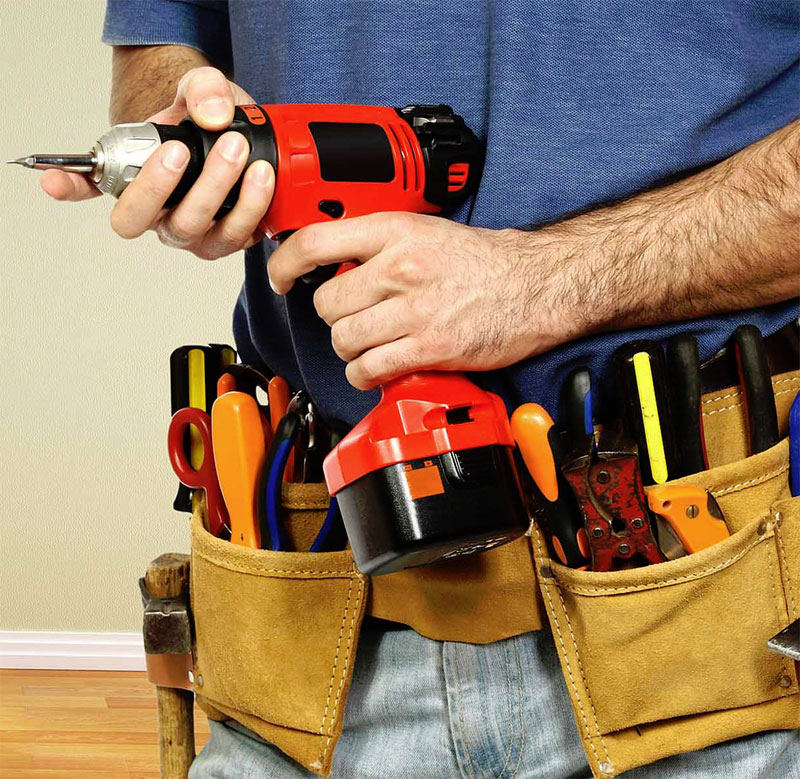
Routine Home Maintenance
Your home may be the biggest investment you will ever make. Taking good care of it with regular maintenance is necessary to preserve its value and ensure it will provide a comfortable, safe shelter for you and your family for years to come.
Maintenance Inside the Home
Air Filters
- Many types of heating and air conditioning systems contain filters to remove dirt and dust from the air. Check the instruction book or search online by model number: In many cases, the home owner should change filters at least every three months.
Sinks
- It’s also a good idea to clean your faucet’s aerator — which is the spring inside the end of the faucet — every three to four months.
- To maintain your garbage disposal, you should run cold water through it during use.
Fireplaces
- When you’re ready to use your fireplace, be sure to build the fire on the andirons or grate, never on the fireplace floor.
- To prevent soot and to add color to the fire, throw in a handful of salt.
- Store your firewood outside, away from the house and not directly on the ground.
- Have a CSIA-Certified chimney sweep inspect your chimney and fireplace annually, especially if you build a lot of fires in the winter.
Floors
- To maintain unpainted concrete floors in your basement or garage, first apply a concrete sealer, which makes them easier to clean. When you’re ready to clean them, use a solution of four to six tablespoons of washing soda in a gallon of hot water. Add scouring powder to the solution for tough jobs.
- For hardwood, be sure the floors have a polyurethane finish before cleaning with water. Hardwood floors that do not have a polyurethane finish will need to be waxed periodically. Use liquid or paste “spirit” wax.
- The best polish for vinyl floors in water emulsion wax.
Walls
- Masonry walls sometimes develop a white powdery substance. This is called efflorescence, a crystallized soluble salt that can be removed by scrubbing with water and a stiff brush.
Safety and Security
- If you have a home security system, regularly check the alarms and circuit breakers to ensure they are in working order. Inspect the sensors one by one.
- The batteries in your smoke and carbon monoxide detectors should also be checked twice a year to ensure they are operable. Hard-wired and battery-powered detectors should be replaced every 10 years.
Maintenance Outside the Home
Roof, Gutters and Downspouts
- A qualified roofer should inspect your roof every three years. Skylights should also be inspected each time your roof is inspected so leaks don’t develop from cracks and interruptions around the seals, caulking and flashings.
- Make sure that gutters and downspouts do not get clogged with leaves or other objects.
Windows and Doors
- Inspect exterior windows and doors yearly to see if the caulking around them has split and cracked. If so, replace the caulk and clean any mildew.
- For a simple solution to wash extremely dirty exterior windows, combine equal parts vinegar and water or three tablespoons of denatured alcohol per quart of warm water. Use a piece of crumbled newspaper to wash the glass to avoid lint left behind by paper towels.
- To help a window slide easily, rub the channel with a piece of parrafin.
Siding
- Inspect your siding yearly to determine if your wood-sided home needs to be repainted. Trim shrubbery away so that it does not touch the siding.
- The exterior of your house is built to withstand exposure to the elements, but a periodic cleaning will improve the appearance and, in many instances, prolong the life of siding and other exterior products.
Garage
- The moving parts of garage doors should be oiled every three months.
Simple Repairs
Faucets, Sinks and Toilets
- If you have a water leak, the washer in your faucet usually needs to be replaced.
- For clogged drains, use a plunger and/or a plumber’s snake.
- To unclog a toilet, use a coil spring-steel auger, which can be found at hardware or home-improvement stores.
Pipes
- Noisy water pipes should be fixed promptly. The condition that causes noisy pipes may be accompanied by vibration that can cause fittings to loosen and leak.
- Frozen pipes should be thawed slowly to prevent the formation of steam, which could cause the pipes to burst.
Walls
- Use spackling to fill nail holes and cracks in plaster walls and gypsum wallboard.

